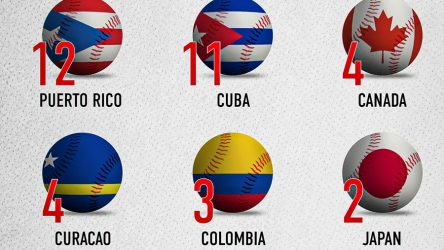
There’s been a lot of controversy lately regarding short games. Namely, whenever a short game appears on Steam, people usually hate it because it is too short, and since it only takes 5-6 hours to finish. They can complete it and return it, and also get their money back. Furthermore, now, people usually watch online walkthroughs or live streams of the game so there’s no reason for them to buy it. Finally, players usually complain that they do not like the game because it’s too short, they expect to get more play time for the money they’ve invested.
All of these elements are likely to discourage you from making short games, and all of them are actually very strong arguments, yet people still make short games. The answer is really simple; these games are not bad, and you definitely should not shy away from making them. The following article will give you the reasons why you should continue making short games, and how to monetize them. Basically, there’s no reason to give up on them, just make sure you do a good job.
Longer doesn’t mean better
First of all, games taught us that it takes 2-3 days of continuous play to complete them, and we still approach the matter with that same mind-set. However, stretching out the experience just to make the game, or any other form of entertainment, doesn’t imply that its quality will be better. To exemplify this, think about the movie “The Hobbit”, and how they made a trilogy out of it. We all loved Lord of the Rings, and it was a masterful trilogy, but the story itself was written in three books. The producers actually reduced that experience in order to fit it into a movie. The Hobbit was entirely different, yet they decided to prolong it.
Truth be told, The Hobbit was not a terrible movie; it was fun to watch, and it was a satisfying experience. However, it’s safe to assume that true fans of the movie would rather pay the same amount of money they spent on three tickets for only a single ticket, if the whole experience was placed in a single epic film like it was supposed to. They wouldn’t have to wait for three years to watch the whole story, and the whole experience wouldn’t feel like it was forcefully stretched out.
You might argue that games are not the same thing as movies, and you would be right, but still, games are powerful mediums for storytelling, and if you rely on the story as a selling point, then it’s better not to overcomplicate it and diminish its impact. Since it’s been such a long time since any of us has experienced a prime game (a game with completely new and innovative game mechanics), most new games are using the story as a major selling point. The other selling point for engagement is PVP systems, but those are not the games we will be discussing in this article.
The whole point of a game is to give a player that sense of immersion he or she craves for, and shorter games can be much better at this. When you play a long video game, filled with side quests, you start to pursuit other things and you lose that sense of urgency that keeps you going. Sure, you pursue other goals and achievements, but you do not feel like you are acting in a major story; you just want to feel powerful so you go to boost your character and explore. So, the true problem is not the length of the game, it’s what you expect the game to deliver.
Short game have their own audience
In the previous section, we mentioned a sense of achievement, room for exploration and PVP. These are basically the features that great triple A titles have to deliver in order to make an engaging game that caters to the masses. Basically, there are four types of players according to Bartle’s Taxonomy; achievers, explorers, killers, and socializers. People want to play the game because they want to make a perfect version of themselves; these are the achievers.
Explores want to go through every nook and cranny, and see what designers have carefully hidden for them to discover. Killers love PVP; they want to be the most skillful player in the room and dominate the battlefield. Finally, there are socializers, who love to engage in conversations with other members of the game community and, like their name suggests, socialize.
Every gamer is a mixture of these features, but the question is which type of player loves short games. Well, there is room to explore, so if it had to be answered in the framework of Bartle’s taxonomy, it would be that explorers are the primary audience. But, since the game is short, it also lacks the environment to satisfy that curiosity. So, the most accurate answer would be, busy people or working people.
There are a lot of those who are employed but would love to spend their free time playing video games. The only problem is that they don’t want longer games, because it’s time consuming, and they probably won’t get to enjoy it and finish it due to their tight schedule.
Basically, a short game is like 2-3 movies long, and it is basically an interactive, long film that a lot of people really enjoy. If you are willing to pay $12 for one movie, then giving $20 for an interactive one that is three times longer actually seems like a fair price. If you are unemployed and young, you want a game that will occupy you on a daily basis, and shorter games do not seem too enticing.
Yet, these games can have a wonderful story with profound depth, and we shouldn’t rob the market of such experiences. You certainly shouldn’t blame the developers or send them negative feedback just because the game was short. If you don’t like the story or graphics, or any other aspect then yes, express your negative opinion, but blaming someone for a short but overall good game is quite absurd.
Making short games
Smaller games are usually made by indie developers, because they work in smaller teams and they do not have enough resources for advertising campaigns. In other words, they make these short games because they are a safe bet, and they really do a great job in the story department. So, if you have a good an interesting story to tell, and want to use a video games to do it, there’s no reason not to do it.
Moreover, now you can go for crowdfunding, if the audience loves what you have to offer. There is a whole base of players that are not looking for an exciting PVP experience, or an open world RPG; people who just want to complete a game in a day or two and move to the next one.
If you want to create short games, you do not even need to have a huge team; all you need are some funds to outsource a portion of the job, and put your project on Kickstarter, or other crowdfunding platforms. You can go over custom game development ratings, to find a team of people you want outsource to.
All you need to do is know how to use games as a storytelling medium. Also, create a connected environment so that players can return to the same points they already visited, without having to go back the way they came.
Basically, go through both good and bad games, to find out what you can use and what to avoid, and you’ll do just fine. If your game receives good feedback, you can make sequels. So, even if the whole experience was initially short, now it has new stories that link to it, and form a new whole. Tell Tale developers are quite good at this, and their games are basically interactive movies that the audience really likes.
As you can see, there is no reason for short games not to be made. People only need to embrace them as a new type of game, and these games already have an audience interested in playing. Additionally, many new developers are encouraged to try out their skills and become bigger companies at some point.







